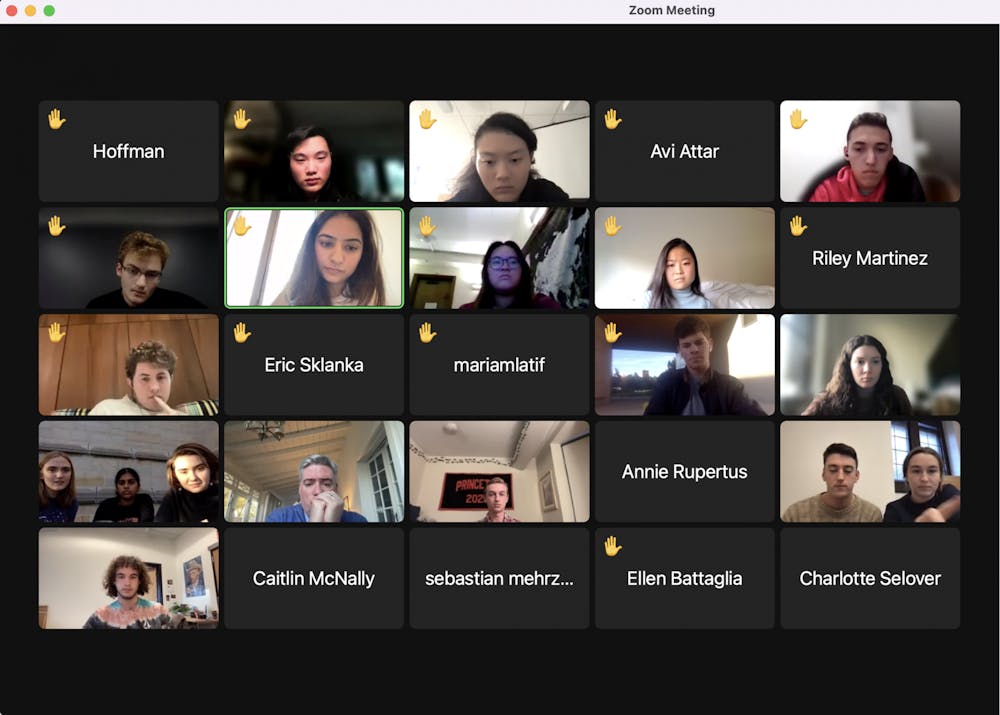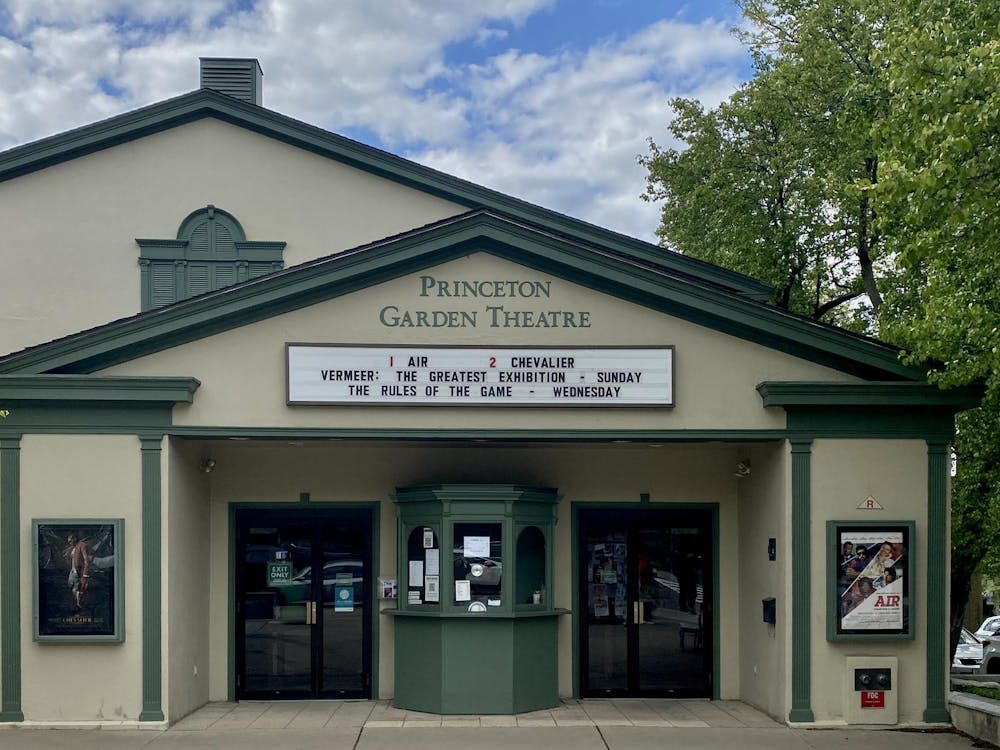The Undergraduate Student Government (USG) voted to hold off on implementing the bulk of a slate of election reforms for the upcoming election cycle at its Sunday, Oct. 30 meeting. It also heard a number of budget updates, approving a Dean’s Date celebration budget increase and an allocation for the Sustainability Committee’s upcoming Eco-Festival event.
USG Communications Director River Reynolds ’24, reading a statement from USG President Mayu Takeuchi ’23, began the meeting with a moment of silence in acknowledgement of the recent death of Misrach Ewunetie ’24. Takeuchi was present at the meeting, but had lost her voice.
“It’s impossible for me to put into words the challenges we’ve been navigating these past two weeks,” Reynolds said on behalf of Takeuchi.
“I recognize there are many questions and various uncertainties and unknowns,” she continued. “I’ve heard from many fellow students that campus feels different, including unsafe in ways it hasn’t felt before. I’ve felt it too.”
Reynolds added that Takeuchi has been in contact with various University administrators with the goal of addressing student concerns around campus safety and lighting. On Tuesday, Nov. 1, two days after the USG meeting, administrators released an email clarifying a series of new security measures in light of student concerns, including increasing lighting.
USG Vice President Hannah Kapoor ’23 described the presentation of a resolution to delay implementing elections reforms as a “last-minute” addition to the meeting’s agenda.
Reynolds, presenting the proposal on behalf of Takeuchi, who put forth the resolution along with Kapoor, explained that the resolution “would make the 2020 version of the [USG Elections H]andbook effective for the winter election.”
The resolution detailed in the meeting packet clarified that one change — the addition of an expanded definition of abstentions on ballots that reads “Abstain — I choose not to vote and therefore my ballot will not be added to the total number of votes cast in this election” — would still go into effect for the upcoming election. The other approved changes, which involve paper campaigning, a delay of the elections calendar, and clarification of various rules, will not go into effect until the spring 2023 election.

These delayed reforms include the implementation of electronic petitioning to replace paper petitions, a clarification of the rules regarding electronic campaign messaging, including a new mandatory disclaimer that must be included in any campaign message sent to more than 10 people at once, a delay to the winter elections calendar by two weeks, the renaming of pre-election “open houses” to “rules meetings” within the official handbook, the inclusion in the handbook of an already-existing rule that bans “expenditures on cash equivalents” like gift cards, the elimination of an “unenforceable” 100-sheet limit on paper campaign posters, and adjustments to the language in the handbook that prohibits the Chief Elections Manager (CEM) from checking election results while a complaint or appeal is pending, in order to better align with the Election Runner program.
“The Chief Elections Manager and the elections team has not had enough time to familiarize themselves with the final rules,” said Kapoor, “and in the interest of having them have ample time to prepare for the election cycle, which starts in a couple of days, we’d like to stick with the pre-existing rules which they have ran elections with in the past.”
According to the USG Winter 2022 Elections Calendar, the upcoming elections cycle is set to begin on Sunday, Nov. 6, the due date for referenda proposals. Candidates must register by Monday, Nov. 21.
Noting that the Senate passed these handbook reforms unanimously on Sunday, Oct. 9, Reynolds added that “under normal circumstances, the Senate as an institution, including parliamentarians and [the] elections team, is under obligation to implement these changes on the approved timeline.”

“That said,” she continued, “most importantly, we must recognize the unique circumstances and challenges of the recent weeks, and demonstrate compassion for ourselves and each other while doing our best to ensure the integrity of our elections.”
Diversity, Equity, and Inclusion (DEI) Chair Braiden Aaronson ’25, who participated in the formulation of the USG reform project’s proposals, reminded Senate members that prior to the passage of the resolution, “on October 9, nearly a month ago, the Chief Elections Manager was closely consulted for this report.”
He added, “in my view, these changes actually make the elections management job significantly easier.”
In response, Kapoor noted that while Chief Elections Manager Brian Li ’24 was consulted about the changes before, the elections team did not receive the official, updated handbook from Parliamentarian Kate Liu ’23 until Oct. 30. Takeuchi later clarified that the updated text was not completed until earlier that day, so it could not have been delivered any earlier.
“[We as USG] do not run the elections ourselves,” weighed in U-Councilor Daniel Shaw ’25. “We don’t know what the process is, but I think it is wise to defer to the elections team on this particular issue. It’s not as though this doesn’t prevent [the changes] from going into effect — it just delays implementation slightly.”
“As long as we have the issue of the abstentions resolved,” he added, “then I don’t think [the delay is] too much to ask.”
U-Councilor Uma Fox ’26 asked if USG could delay a vote on the resolution to allow for more time to ask clarifying questions as no members of the elections team were able to attend the Senate meeting, but Takeuchi wrote in the chat that USG would have to vote immediately since “information regarding the Winter 2022 Election will be shared in the coming week with the full student body.”
The resolution passed, with the vote as follows:
In favor: Undergraduate Student Life (USLC) Chair Avi Attar ’25, Senator Ellen Battaglia ’23, U-Councilor Amanda Branom ’25, U-Councilor Stephen Daniels ’24, Academics Chair Austin Davis ’23, Senator Ned Dockery ’25, U-Councilor Dillion Gallagher ’23 (Eric Sklanka ’23 voted by proxy), U-Councilor Judah Guggenheim ’25 (Avi Chesler ’25 voted by proxy), USG Treasurer Adam Hoffman ’23, Kapoor, Senator Mariam Latif ’24, U-Councilor Riley Martinez ’23, Shaw, Takeuchi, and Sustainability Chair Audrey Zhang ’25.
Opposed: Aaronson, Senator Sean Bradley ’24, Senator Walker Penfield ’25, and Campus and Community Affairs (CCA) Chair Isabella Shutt ’24.
The Senate also heard a monthly expenditure report from Hoffman, who conveyed that USG is in “a pretty comfortable place” financially. Hoffman noted that though certain budget items, like the Academics Committee, Lawnparties, and funding for Senate training ended up being more expensive than anticipated, he is confident in the Senate’s approach of allocating money “modestly” and then drawing from reserve funds as needed.
Student activities fees are a part of tuition and “should be spent for [students] by them for the semester that [they are] intended,” he said, “so I think we should be very comfortable going through our reserves by the end of the semester.”
“We are financially in very good shape,” agreed Kapoor.
The Senate also unanimously approved three budget-related requests. First, Projects Board Co-Chair Melissa Chun ’24 and TigerApps Chair Nick Padmanabhan ’23 presented a request for $1,000 of Projects Board funding to cover expenses, such as website hosting, URLs, and database costs for the student app development group. Padmanabhan noted that over 4,000 Princeton students use TigerApps each semester.
“This is already budgeted for,” Hoffman clarified, noting that it only needed to be voted on since TigerApps had previously existed within USG but is now an official student club with the ability to receive Projects Board funding. The USG budget previously listed an allocation of $1,400 for TigerApps, which will now be funneled through the Projects Board allocation.
The Senate also approved an $10,000 increase in funding for a Dean’s Date celebration, bringing the allocation from $3,000 up to $13,000. The budget increase includes funding for food and a merchandise giveaway, and is in line with the typical pre-pandemic Dean’s Date budget of about $14,000–$15,000, according to the Senate meeting packet.
“This Dean’s Date is an opportunity to revitalize what had been a special tradition before the pandemic,” said Reynolds on behalf of Takeuchi.
Deputy Dean of Undergraduate Students Thomas Dunne emphasized the event’s pre-pandemic popularity.
“For this winter distribution, there’s never been gear leftover for any items that are not sized [including scarves and hats]” since students started the Dean’s Date giveaway tradition in 2001, Dunne said.
USG members discussed the possibilities of allocating more money within the $13,000 budget for gear instead of food and of exploring different branding options for merchandise. At the meeting, USG did not decide how exactly to spend the $13,000.
Additionally, the Senate approved $1,080 of funding for the Sustainability Committee’s upcoming Eco-Festival. Zhang presented a detailed budget and reported that the majority of the funds would be spent on food for the event, which she described as “the crown jewel” of her team’s efforts this semester.
USG Senate meetings are held in Betts Auditorium in the School of Architecture at 4 p.m. on Sunday afternoons and are open to all.
Annie Rupertus is a sophomore from Philadelphia, an assistant data editor, and a staff news writer who covers USG for the ‘Prince.’ Please direct any corrections requests to corrections@dailyprincetonian.com.








